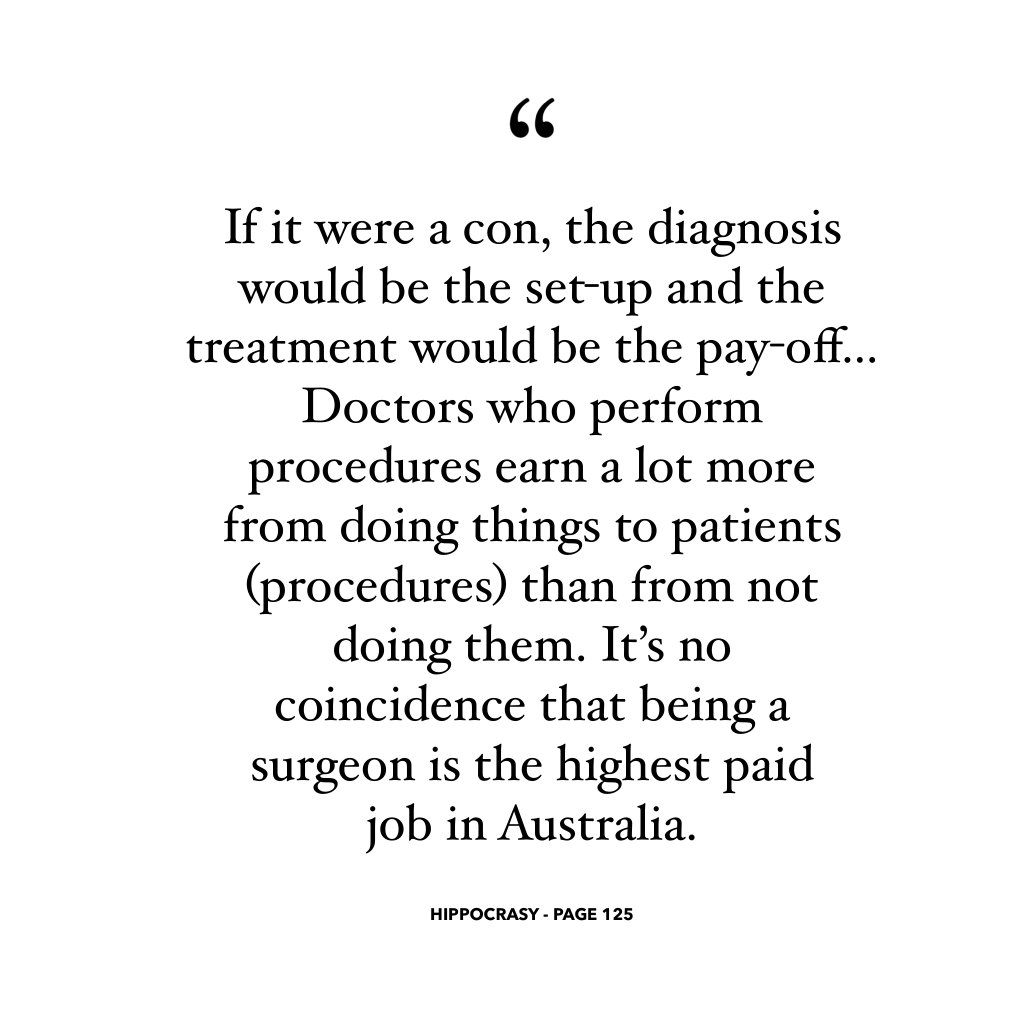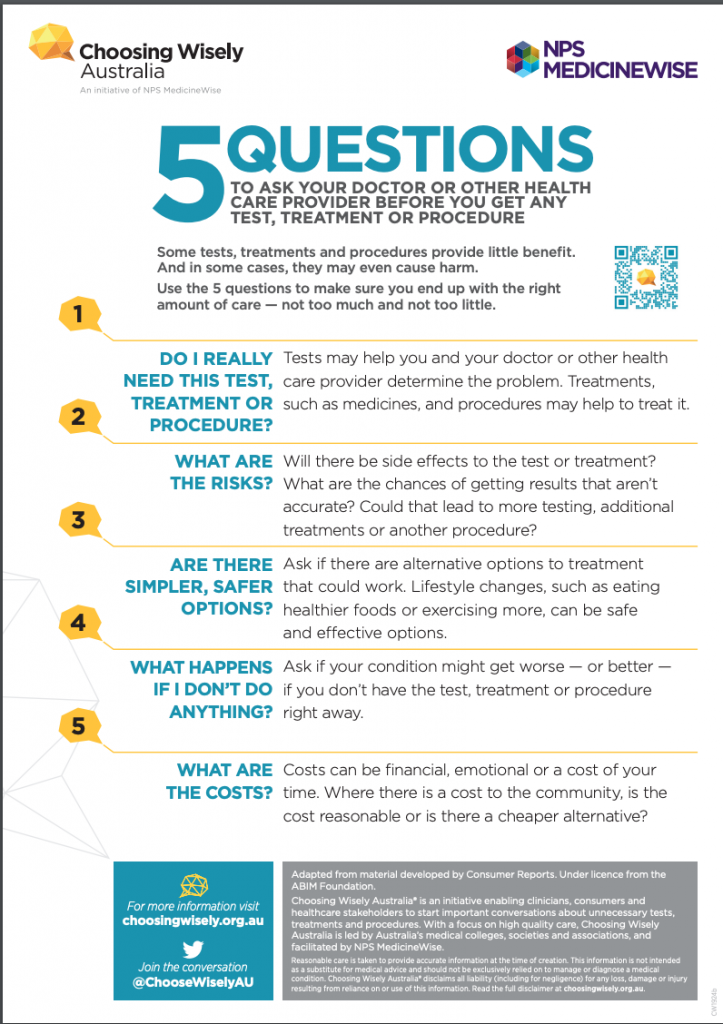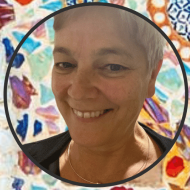Sunday Blog 44 – 10th July 2022

The quote above is from book I have been obsessed with for some months now. The book is called Hippocrasy – How Doctors Are Betraying Their Oath and is written by two doctors – Rachelle Buchbinder (a rheumatologist and epidemiologist) and Ian Harris (an orthopaedic surgeon). It’s the kind of book that must be written by doctors, because mere mortals take on doctors at their peril. Ask any politician who has tried to take on the AMA.
I’m not done with last week’s debriefing of Episode 8 of the Impatient Podcast. Guest Dr Ben Bravery talks quite a lot about second opinions, and how the “vibe” of the consultation with the second oncologist he approached when in the stressful and surreal process of trying to work out what cancer treatment to choose changed. It was when Ben mentioned it was a second opinion. The oncologist was not impressed, his face darkened and the phrase “doctor shopping” was bandied about.
A surgeon’s disdain of patients seeking a second opinion and consulting Dr Google can permeate medicine, but as the quote above says, the surgeon has a vested interest in you choosing to have surgery. For something as important as consenting to surgery, a second opinion is a must. In Ben’s case he needed to have surgery, but this second opinion was so different from the first opinion, and very likely saved his life.
I have fantasised for years about a mythical healthchoice.com.au website for Australians to be able to consult. I imagine us plugging in what it is we are considering undergoing (knee replacement, elective caesarean, cancer treatment…) and seeing all our options in a matrix that has been independently reviewed.
We are SO far from that reality. We make most of our health decisions in a vacuum of information. We usually don’t even know what she would expect in terms of the optimal treatment (with the exception of some cancers – thanks Cancer Council! and we certainly have no idea what our surgeon’s success rate, infection rate, revision rate etc might be. The murky world of medical device companies, whose customers are doctors, is largely opaque to the public. Their goal is to get surgeons to use their devices, and our consent conversations with surgeons are littered with the marketing patter of medical device companies.
We also are not usually aware of all the costs that we will be up for if we undertake surgery – hospital costs, anaesthesia – all of this needs to be painstakingly researched or discovered after the fact when it’s all too late.
Ben Bravery compares consenting to surgery as making a significant purchase where we naturally research, shop around, ask others what they think;
It’s completely natural to do that and it should be encouraged. I tell all my patients go and get a second opinion. And don’t stop there. If you have the means, get a third one. And bring in the paper you’ve printed from the Internet. Bring me in the blog about the person with Lived Experience that has a treatment that you want to talk about. Because my skill is translating that space between all the medical knowledge I’ve inherited and your life. That’s how I see myself, right. I’m not an expert in the disease, I’m an expert in how to translate that to the person sitting in front of me.
The Impatient Podcast, Episode 8 – interview with Ben Bravery, 52 minute mark
Another quote from Hippocrasy:
Saying that a proposed treatment is ‘the latest’, ‘what everybody’s doing now’, ‘targets your disease specifically’, or ‘very safe now’ says nothing of its effectiveness or, for that matter, its actual safety. And saying ‘there’s now quite a lot of research on this treatment’ doesn’t tell the patient whether that research is favorable, but does make them think that it is. Doctors, like salespeople, spend a lot of time talking to people and guiding their decision-making. With practice, it becomes easy to project your own wishes onto the patient.
Hippocrasy, page 127
And this:
We shouldn’t necessarily trust the doctor with these decisions [consent to procedures]. They often have a biased view of benefits and harms, they don’t necessarily recommend what they would want for themselves, and they’re not the one taking the risk.
Hippocrasy, page 131
Having spent two decades as a consumer advocate in one form or other, I want to shout these top tips from the rooftops – when going to consult take a friend! They can take notes and make sure all your questions are answered. Prepare your questions! (if you have no idea what to ask, which is perfectly usual, start below:)
Expect your surgeon to be willing to discuss what you have found out on Dr Google. Move onto the next surgeon if they’re not. Challenge them further and ask if they are willing to share key safety and quality statistics.

In life we seem to have one or two grooves we endlessly riff off. For me, informed consent is one of those. We have a long way to go to get to informed consent to medical procedures, to our mythical healthchoice.com.au.
I am not sure we will ever get there if we continue at the current doctor-friendly (i.e. glacial) pace of health reform and change that we are currently travelling at.
Thus endeth the Sunday lecture!
